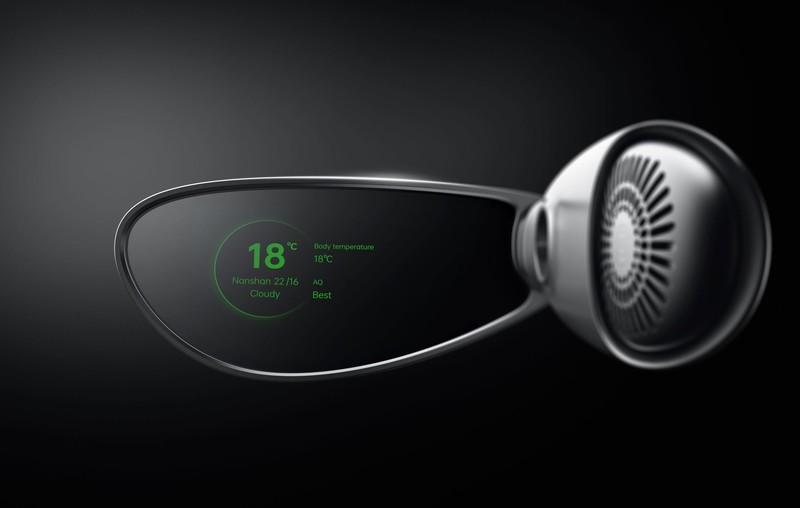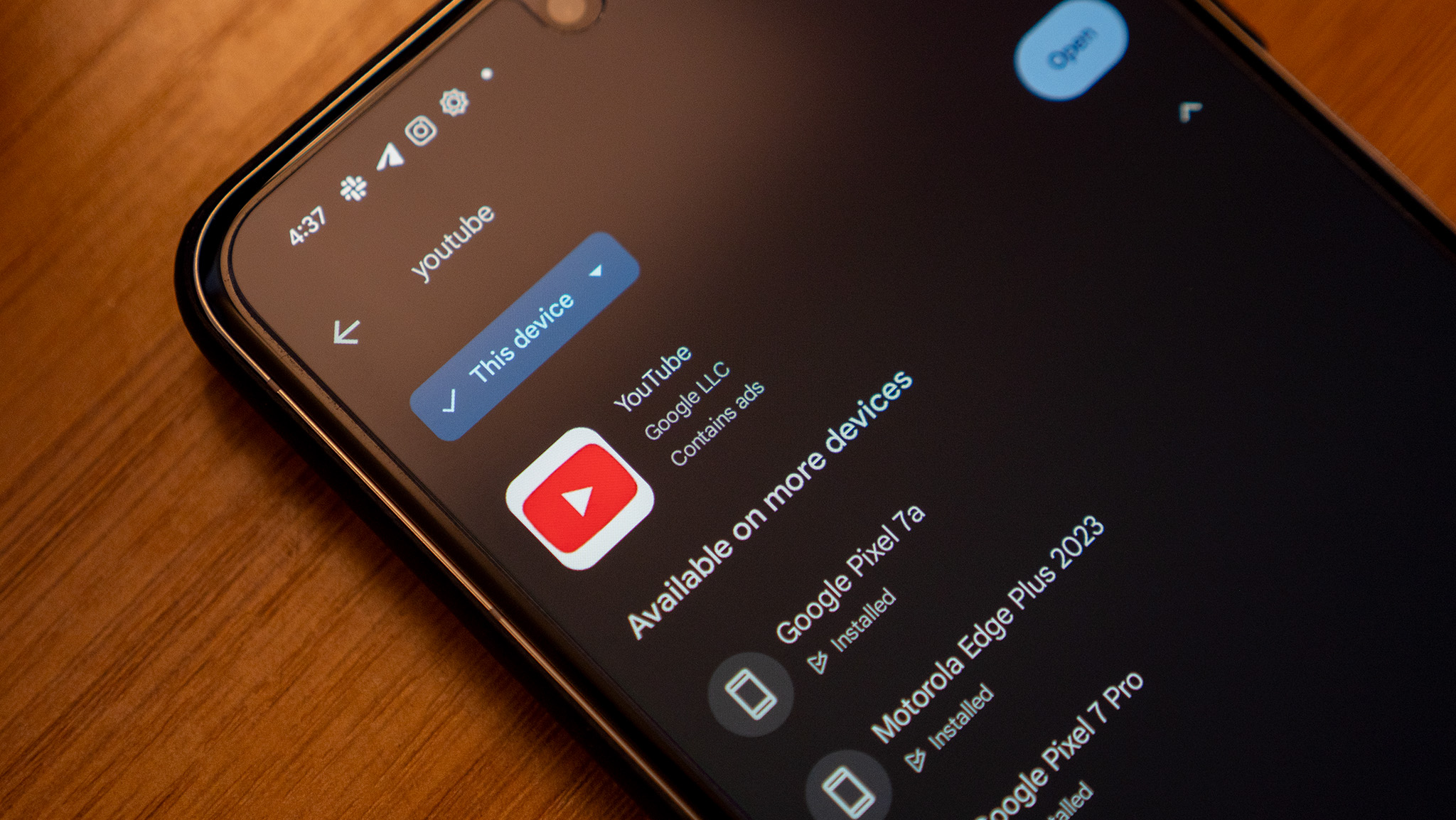OPPO brings the monocle to the 21st century with new Air Glass aR wearable
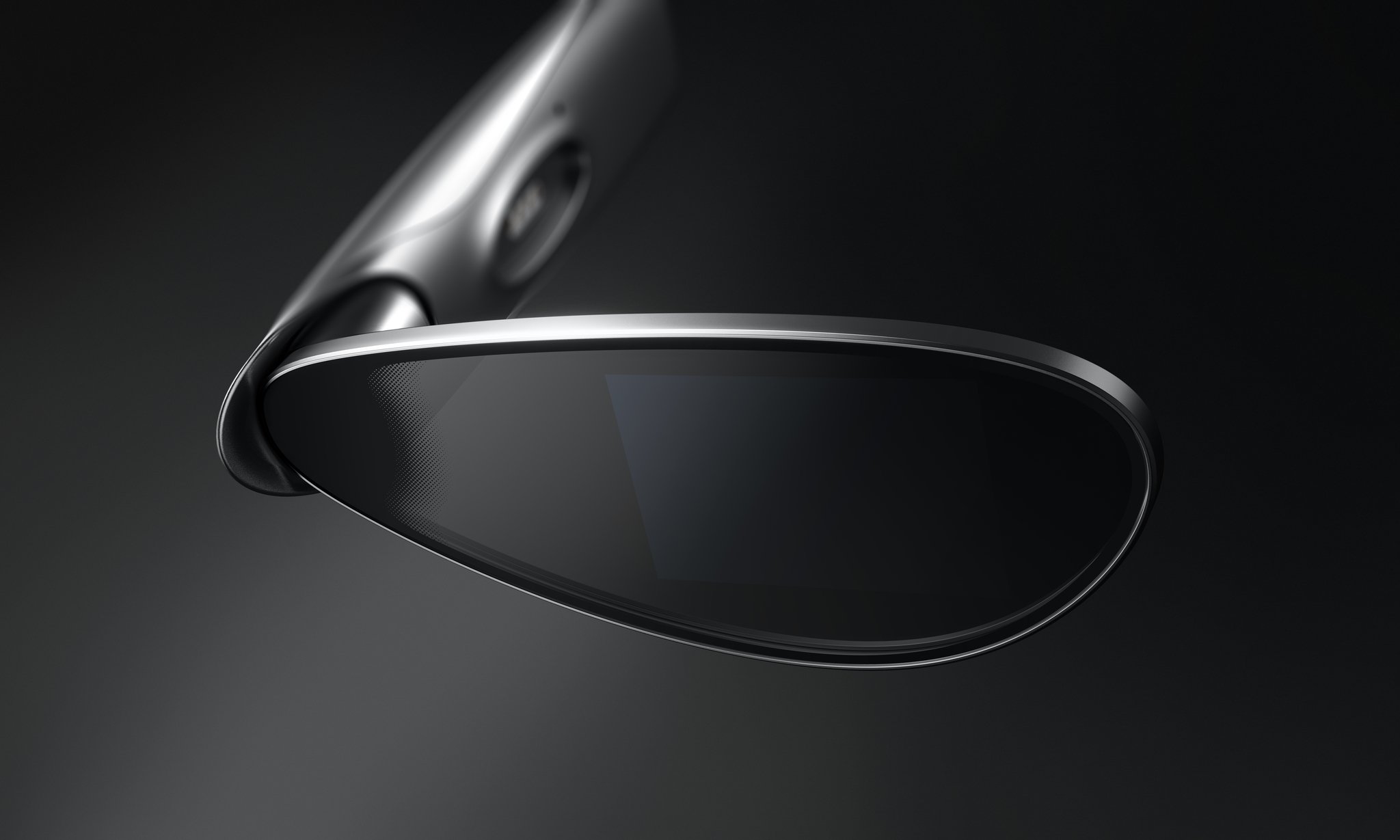
Get the latest news from Android Central, your trusted companion in the world of Android
You are now subscribed
Your newsletter sign-up was successful
What you need to know
- OPPO introduces Air Glass, an AR wearable with a monocle design.
- Air Glass features a Micro LED display and micro projector to display information.
- The wearable works with the OPPO Watch 2 for hand gestures and can be operated with head movements.
- OPPO Air Glass will be available in mainland China in Q1 2022.
During OPPO's INNO Day 2021, the company has taken the wraps off a new aR (Assisted Reality) wearable, the OPPO Air Glass. The device takes a slightly different approach to other smart glasses like the Nreal Light by offering just a single monocle-like display that attaches to a more traditional frame to give the appearance of normal glasses.
At its core, Air Glass is meant to be a fairly discreet way to view information while seamlessly interacting with the world around you. To display information, the device combines a Micro LED display with OPPO's novel Spark Micro Projector, which OPPO claims is one of the smallest projectors, measuring "roughly the size of a coffee bean."
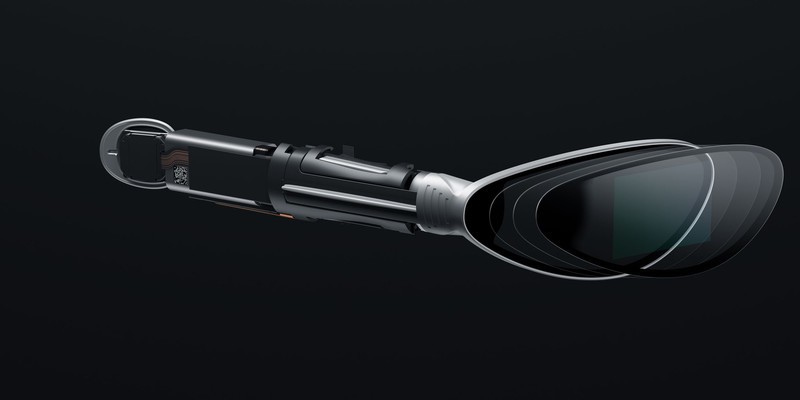
To operate Air Glass, OPPO focuses on four areas of interaction; touch, voice, hand motions, and head movements. Air Glass also supports touch controls on the frame for various commands and voice control, although users can also control settings and functions with the Smart Glass app on some OPPO smartphones like the OPPO Find X3 or on the the OPPO Watch 2.
OPPO Watch 2 owners will also be able to control Air Glass with hand gestures thanks to the watch's inertial measurements unit (IMU) sensor for functions like swiping between App Cards and confirming or canceling actions. And for added accessibility, Air Glass also supports head control with a similar IMU sensor. For example, you can open a new notification by nodding your head or dismiss it by shaking your head.
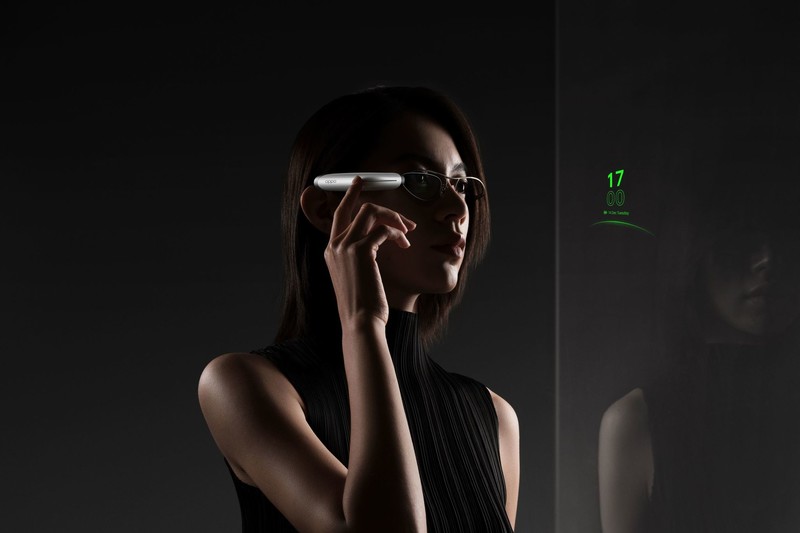
OPPO has been exploring the possibilities of Extended Reality (XR) for a long time, and with Air Glass, we have finally created a smart glass product that is truly within the reach of consumers," says OPPO's Vice President and Head of OPPO Research Institute, Levin Liu, in a statement. "As its futuristic design suggests, OPPO Air Glass is set to revolutionize the way we view and consume information. The easy-to-use display can present key messages we need right in front of our eyes. With OPPO Air Glass, the world will never look the same again."
Air Glass will support several OPPO-made apps at launch, including Weather, Calendar, and Health. There's a Teleprompter app for displaying adaptive text while in a presentation, and the Translation app currently supports two-way Mandarin Chinese-English translation, with Japanese and Korean support coming soon. OPPO partnered with Baidu to support customized versions of its navigation apps for walking and biking directions.
Powering all these features is the Qualcomm Snapdragon Wear 4100 chipset, the same SoC found in many of the best Android smartwatches, including the OPPO Watch 2. As far as availability goes, Air Glass is expected to launch in China in Q1 2022. It will come in either black or white with two custom frame options. There's no word on an international release.
Get the latest news from Android Central, your trusted companion in the world of Android
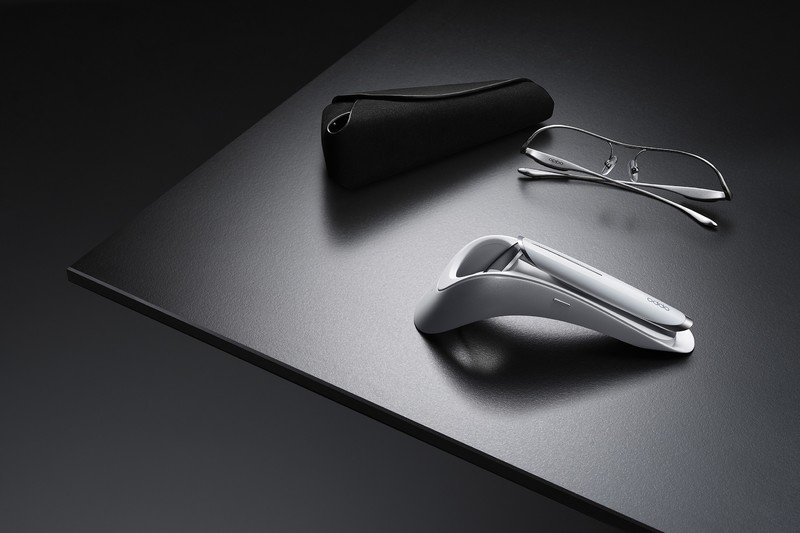
By focusing on assisted reality as opposed to augmented reality (AR), OPPO appears to be taking a middle-of-the-road approach to smart glasses. OPPO could benefit from this with a product that's more useful than "smart" speaker glasses like the Razer Anzu while not trying to do too much like the Nreal Light. OPPO says that while it continues to pursue AR and sees the possibilities of the technology, it believes that assisted reality (aR) "offers a near-term, practical alternative for consumers to experience and enjoy some of the benefits of AR."
With companies like Motorola, Meta, and plenty of others working on their own mixed reality wearable solutions, it'll be interesting to see if anyone will finally be able to make smart glasses mainstream.

Derrek is the managing editor of Android Central, helping to guide the site's editorial content and direction to reach and resonate with readers, old and new, who are just as passionate about tech as we are. He's been obsessed with mobile technology since he was 12, when he discovered the Nokia N90, and his love of flip phones and new form factors continues to this day. As a fitness enthusiast, he has always been curious about the intersection of tech and fitness. When he's not working, he's probably working out.
